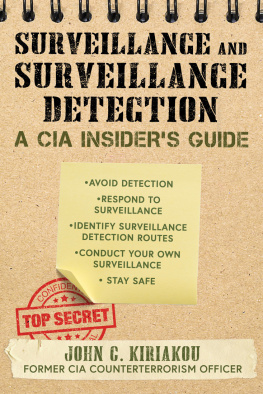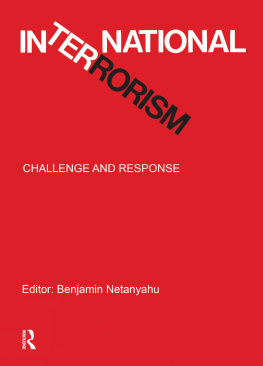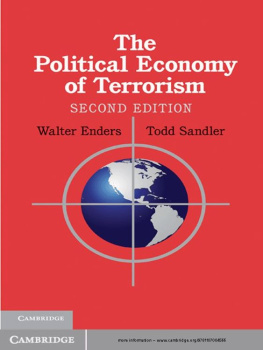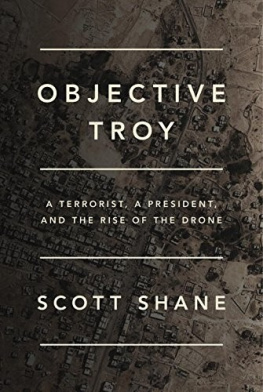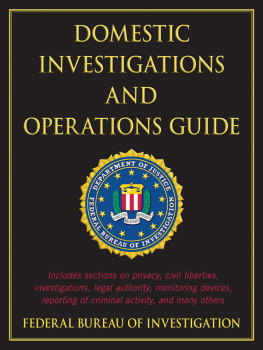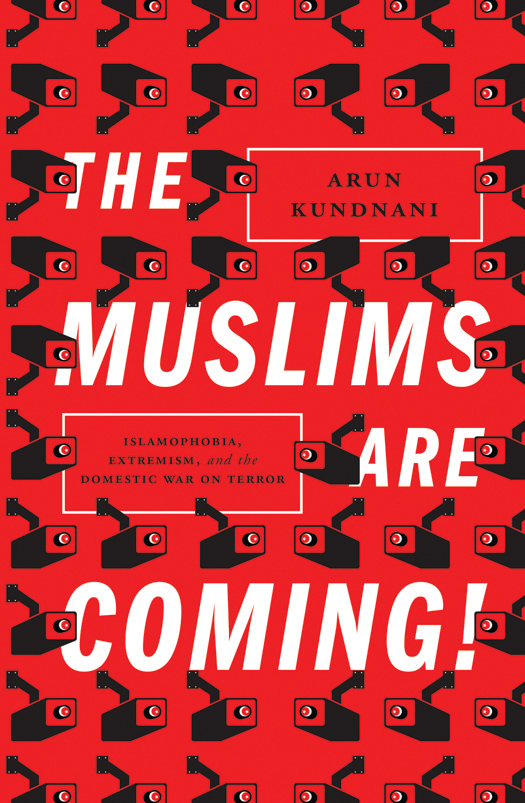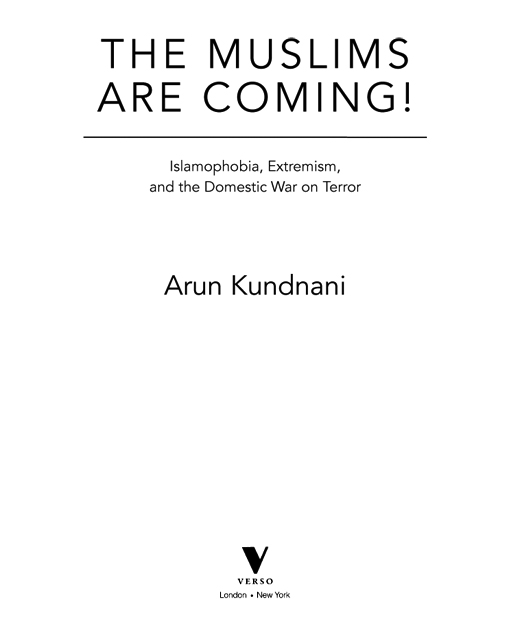First published by Verso 2014
Arun Kundnani 2014
All rights reserved
The moral rights of the author have been asserted
Verso
UK: 6 Meard Street, London W1F 0EG
US: 20 Jay Street, Suite 1010, Brooklyn, NY 11201
www.versobooks.com
Verso is the imprint of New Left Books
ISBN-13: 978-1-78168-159-6 (HBK)
ISBN-13: 978-1-78168-547-1 (Export)
eISBN-13: 978-1-78168-521-1 (UK)
eISBN-13: 978-1-78168-212-8 (US)
British Library Cataloguing in Publication Data
A catalogue record for this book is available from the British Library
Library of Congress Cataloging-in-Publication Data
A catalog record for this book is available from the Library of Congress
v3.1
Introduction
The tradition of the oppressed teaches us that the emergency situation in which we live is the rule.
Walter Benjamin, On the Concept of History
D eath came instantly to Imam Luqman, as four FBI agents fired semiautomatic rifles from a few feet away. Sixty law enforcement officersincluding a special operations team the FBI had flown in from Quantico, Virginia, a SWAT team from the FBIs Detroit field office, and officers of the Royal Canadian Mounted Policehad surrounded the warehouse in Dearborn, Michigan, where the imam and his four colleagues were loading television sets into a trailer on the morning of October 28, 2009. Luqman Abdullah had been the leader of the Al-Haqq Mosque on Detroits impoverished West Side for thirty years. Every Sunday he and his followers had run a soup kitchen, providing some of the basic needs of the local community. The majority of the people in the neighborhood were either unemployed or in low-paying jobs, and they depended on such initiatives for their survival. The landscape of mostly empty and burned-out buildings was testimony to the exodus of huge swathes of the citys population and the practice of families sharing houses when they could no longer afford the rent on their own homes. Imam Luqman was a familiar face, always available to help out Muslim and non-Muslim alike. His favorite word was grassroots, says his son Omar Regan.
He had a strong desire to change the neighborhood. He believed that Islam would help people get off drugs, alcohol, and depression. But he wouldnt even really preach for them to be Muslim more than he
Luqman Abdullah had converted to Islam in the early 1980s, after serving in the military and then falling into depression. The inspiration for his conversion was Jamil al-Amin, who in the 1960s, under the name of H. Rap Brown, had been a leading activist with the Student Nonviolent Coordinating Committee (SNCC). Over the course of a decade, in the face of racist violence and the Democratic Partys sluggish response to the organizations attempts to break southern segregation, SNCC had radicalized; it came to advocate black power and opposition to the Vietnam war, and eventually merged with the Black Panther Party. Rap Brown rose to the top of the FBIs target list of black revolutionaries, and soon enough, the bureau found its opportunity to imprison himon incitement to riot charges. Brown converted to orthodox Islam while in prison in New York in 1971 for reasons no doubt similar to those which led Luqman Abdullah to do the same a decade later. For both, Islam preached active struggle for racial justice alongside individual spiritual development; it offered a way to live and a vision of a better life. This interpretation of Islam offered a framework for continuing the black radical tradition of the Black Panther Party and Malcolm X after a period of defeat for black political struggle. The FBIs Counterintelligence Program (known as COINTELPRO) had secretly destabilized the movement and entrapped its activists. Brown, now calling himself Jamil al-Amin, was released from prison in 1976 and settled in Atlanta, Georgia. He opened a community grocery store and helped rid the neighborhood of drugs. But he continued to face regular law enforcement harassment and arbitrary arrests. Eventually, in 2000, al-Amin was arrested on murder charges after a shootout with two Fulton County Sheriffs deputies occurred. Al-Amin was identified by the surviving officer as the shooter who had been wounded in the exchange of gunfireeven though he had no injuries and another person had confessed to the crime. He is now caged in the domestic Guantnamo, the supermax prison in Florence, Colorado, where the US government incarcerates those it accuses of being among the most dangerous al-Qaeda terrorists.
By the time the war on terror was launched in 2001 much of the sixties generation of black radical activists had been exhausted, co-opted, imprisoned, or killed, to a large degree victims of the FBIs efforts to destroy the movement. But Luqman Abdullah, who was leading the campaign to free Jamil al-Amin, was still preaching radicalism to his small congregation in Detroit. As Omar Regan puts it, he was unfinished business from the days of COINTELPRO. And now the war on terror provided a new lens through which to view his activities. Soon the FBI was categorizing Abdullah as a highly placed leader of a nationwide radical fundamentalist Sunni group consisting primarily of African-Americans who had called his followers to an offensive jihad, rather than a defensive jihad [in order] to establish a separate, sovereign Islamic state within the borders of the United States, governed by Shariah law. The implication was that he shared an ideology with al-Qaeda. In the sixties, figures such as Malcolm X and Muhammad Ali had been portrayed by the media as Muslim extremists; now a new set of images of Islamic extremism had come to the fore, images that could be used to manufacture an ideological connection between a radical black preacher on Detroits West Side and the events of September 11, 2001.
In 2007, the FBI found its opportunity to begin targeting Imam Luqmans mosque. A member of the congregation had recently been arrested on murder charges, and in a deal with law enforcement, he agreed to work with the counterterrorism squad of the FBIs Detroit field office as part of a sting operation. Two other informants were also recruited, and a two-year undercover operation to infiltrate the mosque began. Many of the congregants had criminal records; all were struggling with poverty. The offer of an FBI payout was bound to be tempting. And when the FBI implemented its plan to lure those around Imam Luqman into helping fence stolen goods, it is easy to see how some of them were drawn in. The FBIs informants pretended they had a contact who needed help moving merchandise stolen from trucking companies. Just for turning up to discuss the plan, the contact, played by an FBI agent, gave everyone one hundred dollars. The second time they met, the FBI undercover agent paid one thousand dollars to the group before anything had even happened, and promised another fifteen hundred dollar payment the following night. All they had to do was turn up at a warehouse in Dearborn and help move what they thought were stolen television sets and laptops from one semitrailer to another. This was repeated a number of times over the coming months, gradually drawing Imam Luqman himself into the operation so that he would also be present at the FBIs warehouse when the time came to carry out the raid.
An indictment was issued against Imam Luqman the day before the raid in October 2009 that charged him with conspiracy to sell stolen goods transported in interstate commerce, firearms possession violations, and alterations to a vehicle identification number. No terrorism-related charges were included, despite the involvement of the FBIs counterterrorism squad and the multiagency Joint Terrorism Task Force. But the indictment included claims, based on reports by the FBI-paid infiltrators, of conversations in which Imam Luqman had advocated the spread of Islam through violent


